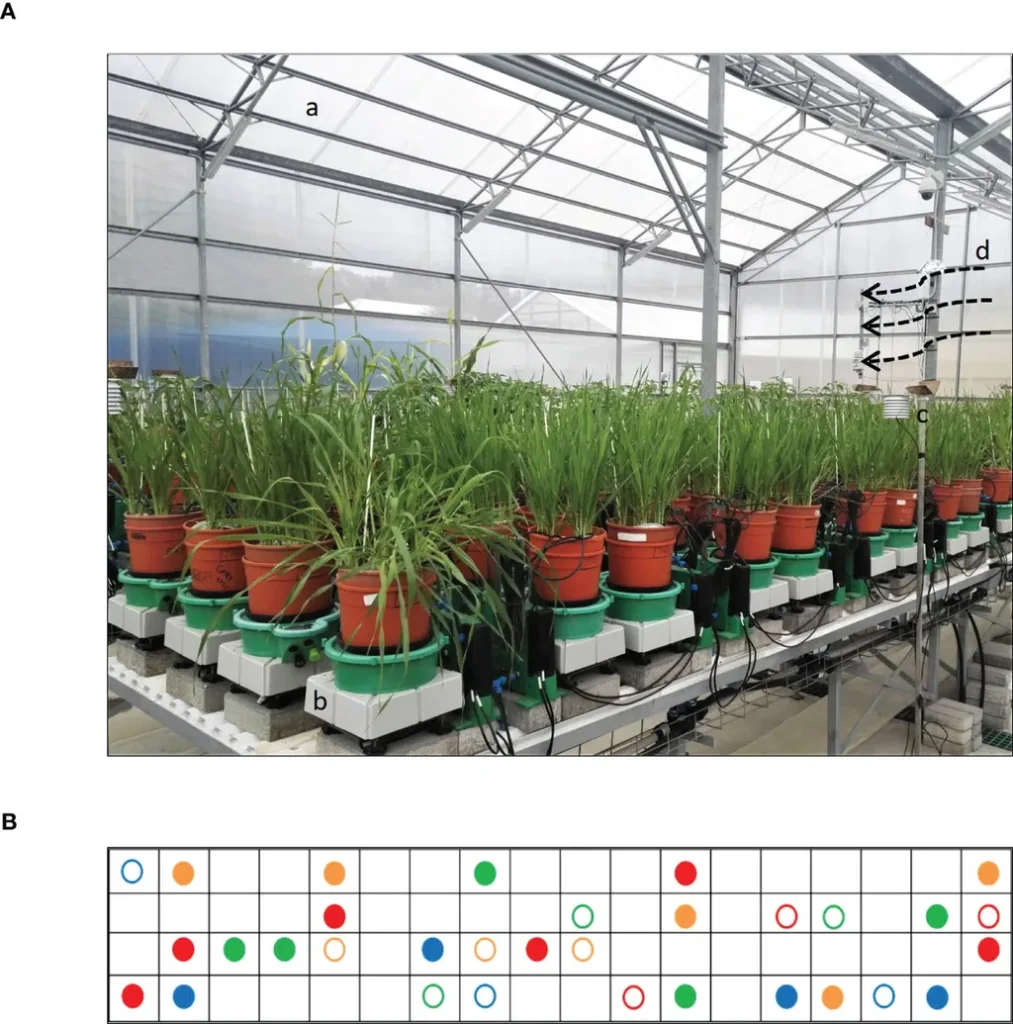In the heart of agricultural innovation, a groundbreaking study has shed new light on the Eceriferum (CER) gene family in barley, offering promising avenues for enhancing crop resilience to drought and salinity. Led by Bahman Panahi from the Department of Genomics at the Agricultural Biotechnology Research Institute of Iran (ABRII), this research could significantly impact the energy sector by improving the sustainability of biofuel feedstocks.
The study, published in the journal Scientific Reports (translated to English as “Scientific Reports”), identified 12 CER genes in the barley genome, each playing a crucial role in mitigating non-stomatal water loss and bolstering plant resilience to abiotic stresses. “Understanding the composition and expression dynamics of these genes is fundamental for developing stress-resilient crop varieties,” Panahi explained. This insight is particularly relevant as the world grapples with the challenges of climate change and the need for sustainable energy sources.
The researchers conducted a comprehensive genome-wide analysis, mapping the CER genes across multiple chromosomes and classifying them into distinct subgroups based on their evolutionary divergence. Structural analyses revealed a high degree of conservation within subfamilies, indicating a stable evolutionary history. “The limited occurrence of gene duplication events suggests an evolutionary trajectory distinct from that observed in other species,” Panahi noted. This finding could have broader implications for understanding the genetic mechanisms underlying stress tolerance in plants.
One of the most compelling aspects of the study is the identification of diverse cis-regulatory elements in the promoter regions of these genes. These elements are associated with hormonal regulation and abiotic stress responses, providing valuable insights into the transcriptional regulatory mechanisms that govern plant resilience. “This information is crucial for identifying potential targets for genetic interventions aimed at improving stress tolerance in cereal crops,” Panahi added.
The expression profiling of these genes under different stress conditions demonstrated dynamic transcriptional responses to salinity and drought. This data is invaluable for developing strategies to enhance crop yield and sustainability in adverse environmental conditions. “By understanding how these genes respond to stress, we can develop more resilient barley varieties that require less water and are more tolerant to salinity,” Panahi said. This could lead to more efficient use of resources and reduced environmental impact, which is particularly relevant for the energy sector as it seeks to develop sustainable biofuel feedstocks.
The implications of this research extend beyond barley, offering a blueprint for improving stress tolerance in other cereal crops. As the world faces increasing pressure to develop sustainable and resilient agricultural practices, this study provides a significant step forward. “Our findings offer valuable insights into the functional roles of CER genes in barley and identify promising candidates for genetic interventions aimed at improving stress tolerance in cereal crops,” Panahi concluded.
In the broader context, this research could shape future developments in the field of agricultural biotechnology, paving the way for more resilient and sustainable crop varieties. As the energy sector continues to explore biofuel alternatives, the insights gained from this study could play a pivotal role in developing crops that are not only resilient to environmental stresses but also efficient in their use of resources. This could lead to a more sustainable and secure energy future, benefiting both the agricultural and energy sectors.

